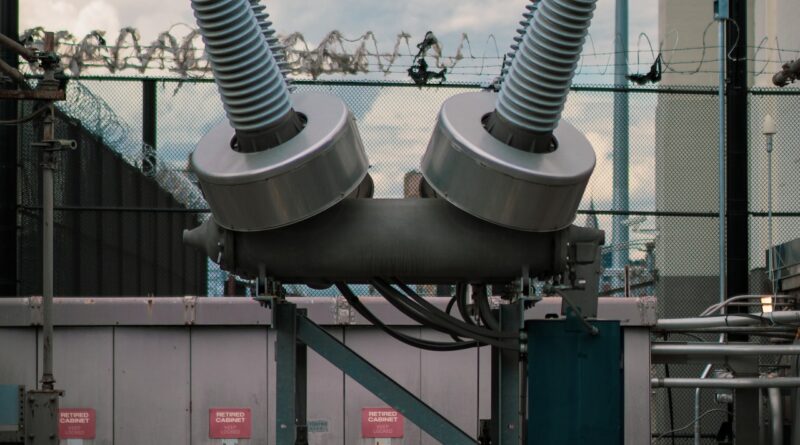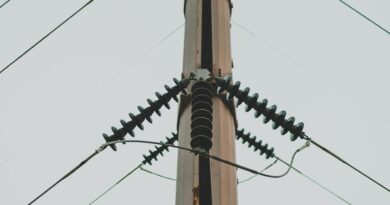Safety Unleashed: Harnessing the Power of Electrical Safety Inspections in Noida
1. Introduction
In a bustling city like Noida, electrical safety is paramount. As the demand for electricity increases, it becomes crucial to ensure that electrical systems and installations are safe and compliant with industry standards. This article explores the power of electrical safety inspections and their significance in safeguarding lives and property in Noida.
2. The Importance of Electrical Safety Inspections
Electrical safety inspections play a vital role in maintaining the safety and integrity of electrical systems. They involve a comprehensive assessment of electrical installations, equipment, and wiring to identify potential hazards, prevent accidents, and ensure compliance with relevant codes and standards.
3. Understanding Electrical Safety Inspections
3.1 What Are Electrical Safety Inspections?
Electrical safety inspections are thorough examinations of electrical systems, components, and installations to evaluate their condition and identify any risks or deficiencies. These inspections encompass a range of visual assessments, tests, and diagnostics to ensure the safe operation of electrical systems.
3.2 Why Are They Necessary?
Electrical safety inspections are necessary to mitigate the risks associated with faulty electrical systems. They help prevent electrical accidents, such as electrocution and fires, by identifying potential hazards and ensuring proper functioning of electrical components.
3.3 Who Should Conduct Electrical Safety Inspections?
Qualified and experienced electrical safety inspectors should conduct these inspections. They possess the necessary knowledge and expertise to assess electrical systems accurately and provide recommendations for improvement.
4. Key Components of Electrical Safety Inspections
Electrical safety inspections consist of several key components to ensure a comprehensive evaluation of electrical systems.
4.1 Visual Inspection
During a visual inspection, the inspector examines electrical equipment, wiring, and installations for visible signs of damage, wear and tear, improper connections, or any other potential safety hazards.
4.2 Testing and Diagnostics
Electrical testing and diagnostics involve the use of specialized equipment to measure voltage, current, resistance, and other electrical parameters. These tests help identify faulty components, voltage irregularities, and potential risks.
4.3 Assessment of Electrical Systems
Inspectors assess the overall condition and performance of electrical systems, including distribution panels, wiring, grounding, protective devices, and lighting systems. This evaluation helps identify areas that require maintenance, repair, or upgrades.
4.4 Documentation and Reporting
After conducting the inspection, the inspector prepares a detailed report documenting their findings, recommendations, and any corrective actions needed. This documentation serves as a valuable reference for property owners, electricians, or relevant authorities.
5. Benefits of Regular Electrical Safety Inspections
Regular electrical safety inspections offer numerous advantages for both residential and commercial properties.
5.1 Preventing Electrical Accidents and Fires
By identifying and rectifying potential electrical hazards, safety inspections help prevent electrical accidents and fires, safeguarding lives and property.
5.2 Ensuring Compliance with Electrical Codes and Standards
Electrical safety inspections ensure that electrical systems adhere to local electrical codes and standards, ensuring the safety and reliability of installations.
5.3 Identifying and Addressing Potential Hazards
Through inspections, potential hazards like faulty wiring, overloaded circuits, or outdated equipment can be identified and addressed promptly, minimizing the risk of accidents.
5.4 Extending Equipment Lifespan and Reducing Downtime
Inspections detect early signs of equipment deterioration, enabling timely maintenance or replacement. This proactive approach extends equipment lifespan and reduces unexpected downtime.
5.5 Enhancing Electrical System Performance and Efficiency
By identifying areas of inefficiency or energy waste, electrical safety inspections can lead to improvements in electrical system performance and energy efficiency.
6. When to Schedule Electrical Safety Inspections
It is essential to schedule electrical safety inspections at various stages to ensure continuous safety and compliance.
6.1 New Installations and Renovations
Before occupying a new property or after completing renovations, electrical safety inspections are crucial to ensure that the electrical systems are installed correctly and meet the required standards.
6.2 Periodic Inspections
Regular periodic inspections, conducted annually or biennially, help identify any deteriorating components, potential hazards, or non-compliance issues.
6.3 Prior to Property Transactions
Before buying or selling a property, it is advisable to conduct an electrical safety inspection to assess the condition of the electrical systems and avoid any unforeseen problems.
6.4 After Major Storms or Natural Disasters
Following severe storms or natural disasters, electrical safety inspections are necessary to assess and repair any damage caused by power surges, flooding, or other related incidents.
7. Hiring Professional Electrical Safety Inspectors in Noida
When considering electrical safety inspections in Noida, it is crucial to hire qualified and reputable professionals.
7.1 Qualifications and Credentials
Ensure that the inspectors possess the necessary qualifications and credentials, such as licenses or certifications, to perform electrical safety inspections.
7.2 Experience and Expertise
Choose inspectors with extensive experience in conducting electrical safety inspections, preferably with a background in residential or commercial electrical systems.
7.3 Reputation and Reviews
Research the reputation of the inspection service provider by checking reviews and testimonials from previous clients to ensure reliability and quality service.
7.4 Cost and Service Details
Request quotes from multiple inspection service providers, comparing their costs, service inclusions, and turnaround time to make an informed decision.
8. DIY Electrical Safety Tips for Homeowners
While professional electrical safety inspections are essential, homeowners can also adopt certain practices to promote electrical safety.
Certainly! Here are some DIY electrical safety tips for homeowners:
8.1 Proper Use of Electrical Appliances and Equipment
- Follow the manufacturer’s instructions for installation, operation, and maintenance of electrical appliances and equipment.
- Avoid overloading electrical outlets by plugging in too many devices or appliances at once.
- Unplug appliances when not in use to reduce the risk of electrical hazards.
8.2 Regular Maintenance and Cleaning
- Inspect electrical cords for fraying, cracking, or damage. Replace any damaged cords immediately.
- Keep electrical equipment clean and free from dust and debris, as they can interfere with proper functioning and pose a fire risk.
- Schedule regular maintenance checks for your electrical systems to ensure they are in good working condition.
8.3 Understanding Circuit Breakers and Fuses
- Familiarize yourself with the location and function of the circuit breaker panel or fuse box in your home.
- Test and reset circuit breakers or replace fuses as needed.
- If you experience frequent tripping of circuit breakers or blowing of fuses, consult a professional electrician to identify and resolve the underlying issue.
8.4 Safe Practices Around Electricity
- Never touch electrical switches, outlets, or appliances with wet hands.
- Avoid using electrical devices near water sources or in damp areas.
- Teach children about electrical safety and keep them away from electrical outlets and cords.
- Use appropriate extension cords rated for the intended purpose and avoid running them under carpets or across walkways.
9. Conclusion
Electrical safety inspections are an essential aspect of maintaining a safe living environment in Noida. By identifying potential hazards, ensuring compliance with codes and standards, and promoting proactive maintenance, these inspections help prevent electrical accidents and protect lives and property. Whether through professional inspections or adopting DIY safety measures, prioritizing electrical safety is paramount for every homeowner.
FAQs (Frequently Asked Questions)
Q1. How often should electrical safety inspections be conducted? It is recommended to conduct periodic electrical safety inspections annually or biennially, depending on the age of the electrical system and the usage of the property.
Q2. Can I perform electrical safety inspections myself? While homeowners can take some DIY safety measures, it is advisable to hire qualified professionals for thorough electrical safety inspections to ensure accurate assessments and compliance with standards.
Q3. What should I do if an electrical hazard is found during an inspection? If an electrical hazard is identified during an inspection, it is crucial to address it promptly. Contact a licensed electrician to assess and resolve the issue to minimize the risk of accidents or further damage.
Q4. Are electrical safety inspections necessary for new properties? Yes, electrical safety inspections are essential for new properties to ensure that the electrical systems are installed correctly, meet safety standards, and comply with local regulations.
Q5. How can I find a reliable electrical safety inspector in Noida? To find a reputable electrical safety inspector in Noida, you can seek recommendations from friends, family, or neighbors, or conduct online research to read reviews and check their qualifications and credentials.




